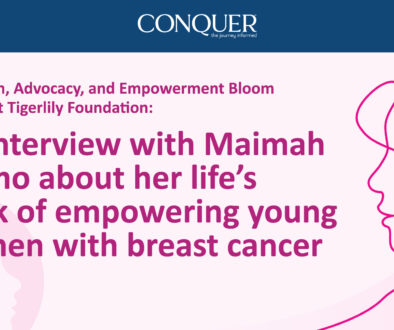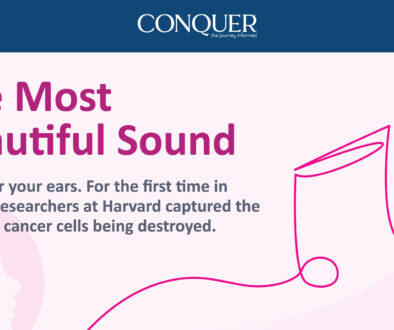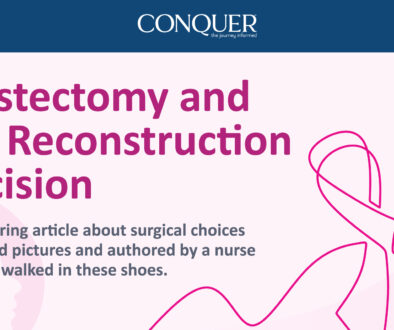Putting the Power in Hands of the Underserved
To recruit Black women in clinical trials, we need to educate communities and say, okay, we know about the Tuskegee project and we can add a lot about the different projects. But there are things in place that hopefully prevent hospitals, oncologists, and researchers from having that same history. -Sheila Marie McGlown
Nunny Keyla Reece was diagnosed with ER/PR and HER2 metastatic breast cancer in 2017.
After finding a lump in her breast in 2015, and receiving a mammogram, the radiologist told Nunny it was benign fatty tissue and to return if she noticed any changes. She was 37 at the time, with no history of breast cancer in her family. In 2017, she started to have severe pain in her back and at the same time, she found a new lump under her arm. At 39, she was diagnosed with metastatic breast cancer (mbC). “All I could think about,” she says, “was my husband and children.”
Nunny began to attend conferences to educate herself. She also started sharing her own story to educate her community. When she was first diagnosed, she felt alone. This was because at first she did not encounter other Black women with mBC. But according to Nunny, the problem runs deeper than that. Black women do not see Black women included in commercials or magazines, at conferences or in brochures. For this reason, “they think mBC is only a white woman disease. This is unacceptable.” The lack of representation in media and in the medical community’s outward facing educational materials leads to disparities in prevention and treatment. And it reflects the lack of inclusion of Black women in research and the development of medical advancements.
Many Black women also lack equal access to care and treatment that can improve quality of life and extend life. Nunny has experienced this firsthand in the system and in her relationships with medical professionals, starting with the radiologist’s incorrect diagnosis in 2015, and extending to relationships with her physicians.
“You want to trust your physician,” Nunny Keyla Reece says, “whether you’re Black or white.” But racism exists everywhere: work, school, and the doctor’s office. And when living with mBC, it’s hard if you can’t get the care you need. In the past, she noticed that white friends received information about chemotherapy or clinical trials. When Nunny asked about these options, physicians would tell her, “You don’t have anything to worry about.” And they did not listen and respond to her concerns. When Nunny complained of having headaches for the first time, her physician said it was probably allergies. She had to argue for tests. “To completely shut someone down, especially when you are already in stage IV,” Nunny says, “Why would someone do that? It’s not putting my care first.” When she received MRI results showing a brain mass, Nunny was glad she spoke up and caught it in time.
When Nunny heard other Black women speak about similar experiences, she realized it happened to them, too. “Sometimes the care level is just different,” she explains. She does not want a doctor who will not give it their all, who will “give up before I’m giving up.” So far she has shifted through four physicians, seeking what she needs: a physician who cares about her as a human being and will try to build a bridge to mutual understanding, someone who will open a space to learn about her and ask the right questions. She needs a physician who will explain what she should know and do; and answer her questions fully. Nunny will do whatever it takes and she expects the same from her physicians.
Bio:
Nunny Keyla Reece, a former certified medical assistant in pain management, is an Angel Advocate with the Tigerlily Foundation and works to reduce racial health disparities. She believes passionately that it is important for people with mBC to be able to express themselves freely in the support of a community, and advocate for what they need in the medical community, which includes both empathy and access to the best care. Nunny works to pay forward the support she has received, and to love life with her family and broader community.



